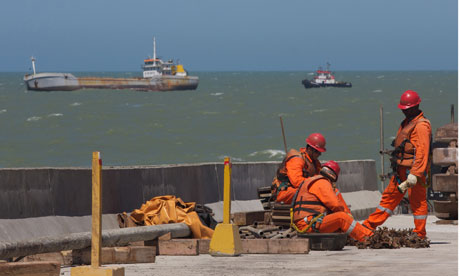 In a poll
In a poll taken in late August roughly two out of three Peruvians disapproved of President Alan Garcia’s performance. This figure is unsurprising, as the leader of the Andean country has apparently made several missteps in recent weeks.
In May convicted rebel supporter Lori Berenson was released from prison after having served fifteen years behind bars. Last month, however, an appeals court
overturned her parole and she was ordered to return to prison. Yet Garcia may have rubbed some of his countrymen the wrong way when he mentioned in an interview last week that he does not consider Berenson as a “threat” to Peru. "How much can Peru really
fear a woman who spent 15 years in prison?... She has a little boy, and that moves me a lot," said Garcia who added that he would consider commuting her sentence so she can return to the U.S.
Yesterday Garcia
suddenly backtracked from a controversial decree he emitted recently. Originally he presented Decree No. 1097 as a reform that would’ve allowed judges to dismiss charges against those “whose cases have suffered an excessively long investigation." The government claimed that the law would not affected those already sentenced for human rights violations such as ex-president Alberto Fujimori.
Critics of the move claimed that the law would’ve
granted amnesty against those being investigated of human rights violations during the Peruvian civil conflict. Opposition grew against Garcia’s decree including among some members of his political party. One of Peru’s foremost literary figures
even came out against the law:
Acclaimed novelist Mario Vargas Llosa tendered his “irrevocable” resignation from presiding over the commission charged with the construction of a memorial to victims of 20 years of politically motivated violence in Peru, a move he said he made to reject a controversial decree he called a “barely disguised amnesty” for rights abusers.
Garcia has also come under fire for supporting the possibility of expanding the
U.S. military presence in Peru in order to combat the illegal narcotics trade. One former senior army official claimed that such a move would hurt “the moral and combative spirit of (Peru’s) troops.”
Under Peru’s constitution Garcia is not allowed to run again for the presidency; that could be a relief for some of his countrymen disappointed at his current term in office.
Image- EFE
Online Sources- Gothamist, MSNBC, EFE, BBC News, LAHT, Angus Reid Consultants









